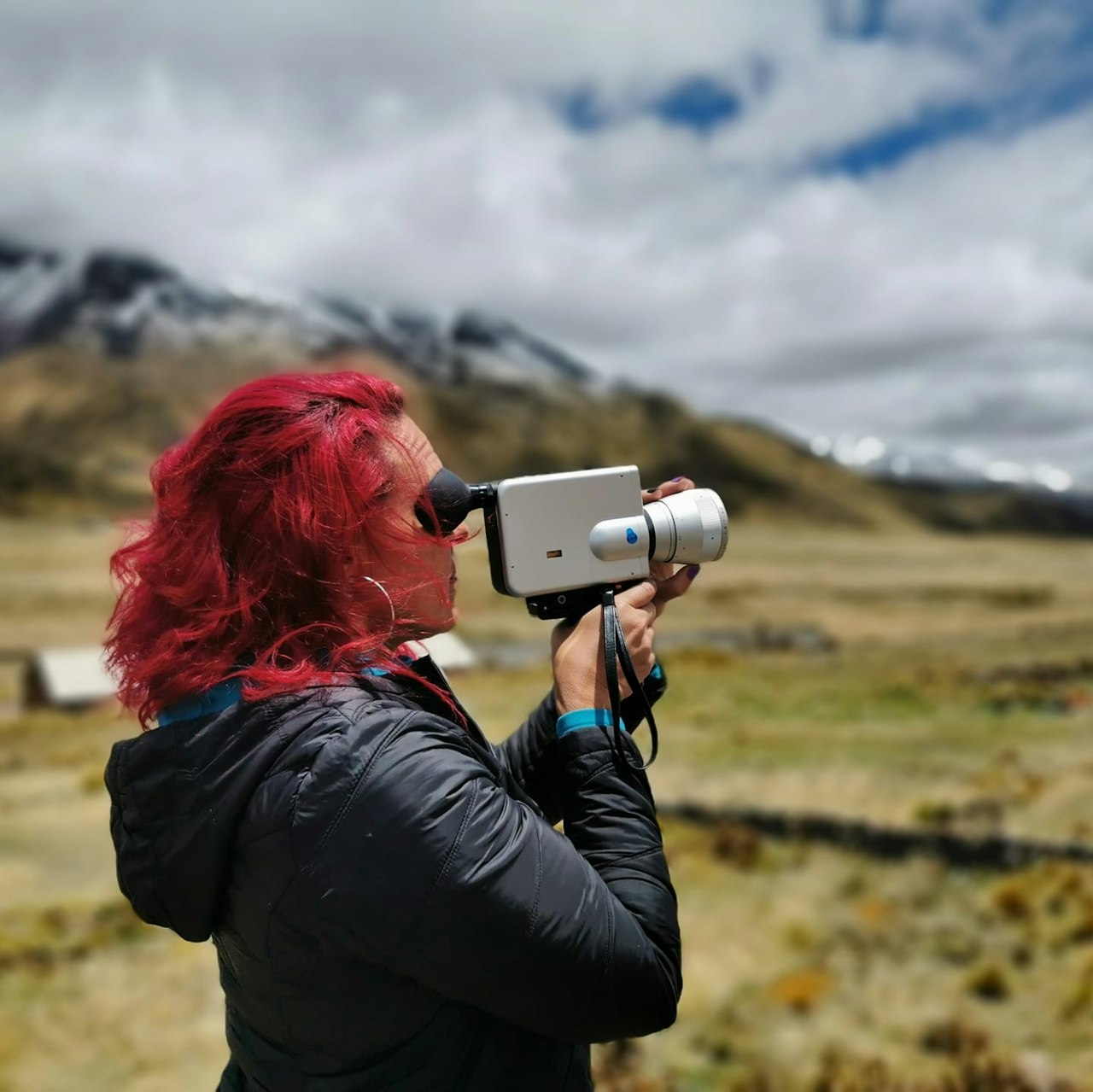
Alexandra Gelis is a Colombian-Venezuelan artist living and working in Toronto, Ontario. Her studio practice combines new media, installation, and photography with custom-built interactive electronics. She uses data capture techniques, video, sound, and spatial and electronic media to create documentary based immersive installations, single-channel videos, and experimental photography.
In her work, she addresses social, political and biological concerns traced in the population and the territory by socio-bio-political interventions, through research located in specific contexts and in constant dialogue with Latin America. From this plant-based research-creation: she explores, documents and re-creates ecologies that take shape between plants and people, and between plants and their multi-species interrelationships. The idea of plants as political allies is central to her concept of "Migrated Plants" as (PTTPC) Plants that have been appropriated as Technologies for Territorial and Population Control. Plants transplanted by those in a position of power to colonize (see Corridor series) but who also become allies of those in a subordinate position as a form of resistance (see plants and resistance series). This investigation takes into account the fundamental autonomous behavior of the "Migrated plants".
She has exhibited internationally in North and South America as well as Europe and Ethiopia in Africa.
In her installation work, she creates immersive sculptural spaces, using video projections and intricate sound designs. She also works as an educator/facilitator, leading video and photography workshops aimed at youth in marginalized communities in Canada, Colombia and Panama. Because she works as a workshop facilitator in several countries, in many cases, her teaching practices determine the artistic work that she creates.
Alexandra Gelis has been the recipient of numerous prizes and awards, including the Canada Council for the Arts, Ontario Arts Council, Toronto Arts Council, Colombian Minister of Culture, among others. She also won the prestigious Colciencias Doctoral Fellowship Program for her Ph.D. research: An Arts-Based Inquiry into plant/human relations in Equinoctial America: a case study of San Basilio de Palenque, Colombia.
Her research focused on the Caribbean has been supported by The Grace and David Taylor Graduate Scholarship in Caribbean Studies and The Paavo & Aino Lukkari Award: for research focused on human rights and social justice issues related to the situation of indigenous peoples or Afro-descendants in Latin America and the Caribbean.
An online symposium that brings The Mind of Plants contributors together to share their reflections and various learnings with plants.
Stories, poetry and sound across a diversity of human languages and geographical landscapes. Come and join us!
Are you new to animal studies research? Do you grapple with current theoretical debates – such as intersectionality and decolonial approaches? Do you wonder how and where to publish? If you would like to understand the basics of the publication process, from pitching an article idea to responding to peer review and get advice on what’s possible when working with non-traditional outputs – such as visual art and creative writing – join us at the master class: Tools for Animal Studies Research.
This interactive online event, presented by the Australasian Animal Studies Association (AASA), is aimed at higher degree and early career researchers interested in animal studies. You will have an opportunity to hear from scholars doing innovative work in the field and ask questions.
![green-plant-dark-background-wild_55536-12 [no text]](https://artsfront-live-s3-au.imgix.net/artsfront/media/pool/img/17/81/56/4oo0i-bd837f32da95bde5353994eb59022449.jpg?fm=jpg&ixlib=php-1.2.1&name=lge&orient=1&w=1280)
